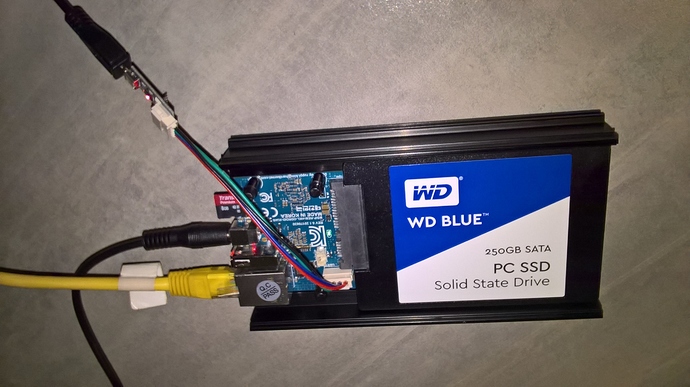first of all sorry for my engilsh, i hope to be clear 
from what i have understood, only arm64 (aarrch64) will be supported from upstream in long run.
There is already epel and with latest beta also SCL, so i think in the long run arm64 is the way to go. But probably not all sbc will be supported… see:
https://lists.centos.org/pipermail/arm-dev/2017-October/003123.html
https://lists.centos.org/pipermail/arm-dev/2017-October/003124.html
while at the moment Rpi2-3 arm32 (armhfp) have official centos image, but without full epel and no SCL.
as for now, i see porting NS7 on arm64 is a lot easier, especially for additional modules, also if there aren’t official images for SBC
i think we can follow both the way but with different scopes. Probably only arm64 will be supported from the upstream, so we can imagine that in the future we will have only a NS7 for arm64, so also working on sbc with arm64 i think it’s a good way to stay up to date with the upstream, i mean to be ready when we will have nice hardware with centos fitting nicely on it. ( something like http://macchiatobin.net/ )
On the other way, rpi2-3 is widely used, so i think it could be a good effort to have a “reduced” ns7 for them (also if i hope to see a centos arm64 for rpi3 in 2018 see arm dev ml)
This i why i have split the comps. it would become impossible to keep them both up-to-date, with the same modules available.
What i would like to do is an IMG of NS7.4 ready to be burn on an SD with something like etcher to have an NS7.4 for rpi3 ready in minutes also if not all modules of x64 will be available (but we can work on some of them).
why invest time in something that will probably not be the future of ns7 on arm?
- because raspberry is widely used
- because all in all it is not very difficult
- because I would like to make NS7 also available to raspeberry users (a lot of guys use it for educational purposes)
so to summarize what I thought to do:
arm32: make an IMG for rpi3 (and maybe rpi2)
arm64: continue to test on whatever HW/VM to follow development/porting of NS7 on arm64 until the supported hardware will be more clear
but of course, I’m very curious to know what you and the nethserver community thinks of it,
and redefine the rpath to port ns7 on armalso based on use cases and interests



